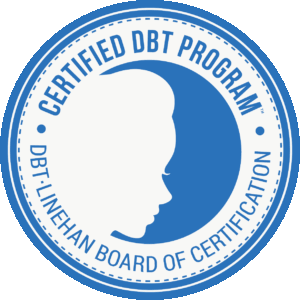Anxiety disorders affect millions of people worldwide, and finding the right therapy program is crucial for managing and overcoming these challenges. In Voorhees, NJ, there are several options available, each offering unique approaches and specialties. Here’s a comprehensive guide to help you choose the best anxiety therapy program for your needs:
Understand Your Needs
Before diving into the plethora of therapy options, take some time to assess your specific needs and preferences. Consider factors such as the severity of your anxiety, any co-existing conditions (like depression), preferred therapy styles (e.g., cognitive-behavioral therapy), and whether you prefer individual or group sessions.
By thoroughly understanding your needs across these dimensions, you empower yourself to make a more informed decision when selecting an anxiety therapy program in Voorhees, NJ. This clarity not only helps you find a therapist who can address your specific challenges effectively but also enhances your overall therapy experience and likelihood of successful treatment outcomes.
Therapists and Programs
 Start your search by researching therapists and therapy programs in Voorhees, NJ, specializing in anxiety disorders. Look for licensed therapists with experience in treating anxiety specifically. Websites like Psychology Today, local directories, or recommendations from healthcare providers can be valuable resources.
Start your search by researching therapists and therapy programs in Voorhees, NJ, specializing in anxiety disorders. Look for licensed therapists with experience in treating anxiety specifically. Websites like Psychology Today, local directories, or recommendations from healthcare providers can be valuable resources.
Finding the best anxiety therapy program in Voorhees, NJ, involves thorough research, careful consideration of therapist credentials and approaches, and trusting your instincts to find a therapist with whom you feel comfortable and supported. By investing time and effort into this process, you can take a significant step toward managing and overcoming anxiety to improve your overall well-being.
Consider Therapy Approaches
Different therapy approaches can be effective for anxiety, including Cognitive Behavioral Therapy (CBT), Acceptance and Commitment Therapy (ACT), Dialectical Behavior Therapy (DBT), and mindfulness-based therapies. Understand the principles behind these approaches and consider which resonates best with you.
Cognitive Behavioral Therapy (CBT)
CBT is a widely recognized and evidence-based approach that focuses on identifying and changing negative thought patterns and behaviors associated with anxiety. Therapists using CBT help clients develop practical skills to challenge irrational thoughts, modify behaviors that contribute to anxiety, and gradually face feared situations through exposure techniques. This structured approach is goal-oriented and can empower individuals to manage their anxiety effectively.
Acceptance and Commitment Therapy (ACT)
ACT emphasizes acceptance of uncomfortable thoughts and feelings rather than attempting to eliminate them. This mindfulness-based approach encourages clients to identify their core values and commit to actions that align with these values, even in the presence of anxiety. ACT aims to enhance psychological flexibility, helping individuals live a meaningful life while acknowledging and coping with anxiety symptoms.
Dialectical Behavior Therapy (DBT)
Originally developed to treat borderline personality disorder, DBT has been adapted for various mental health conditions, including anxiety. It combines elements of CBT with mindfulness techniques, emphasizing skills such as emotion regulation, distress tolerance, interpersonal effectiveness, and mindfulness. DBT is beneficial for individuals struggling with intense emotions and difficulty managing stress, providing practical tools to navigate challenging situations and reduce anxiety symptoms.
Mindfulness-Based Therapies
These therapies incorporate mindfulness practices, such as meditation and breathing exercises, to cultivate present-moment awareness and non-judgmental acceptance of thoughts and emotions. Mindfulness-based stress reduction (MBSR) and mindfulness-based cognitive therapy (MBCT) are examples of approaches that can help individuals reduce anxiety by fostering a greater sense of calmness, resilience, and emotional balance.
Psychodynamic Therapy
Rooted in psychoanalytic principles, psychodynamic therapy explores how past experiences, unconscious thoughts, and interpersonal relationships influence present-day emotions and behaviors. Therapists using this approach help clients gain insight into underlying conflicts and patterns contributing to anxiety, promoting self-awareness and emotional healing through exploration and interpretation.
Evaluate Therapist Qualifications
Ensure that therapists you consider are licensed and accredited. Look into their educational background, years of experience treating anxiety disorders, and any specialized training or certifications they may have. A therapist’s expertise and approach can significantly impact the effectiveness of your treatment.
Licensure and Accreditation:
Ensure that the therapist is licensed to practice in New Jersey and holds relevant accreditation from recognized professional bodies. Licensure indicates that the therapist has met specific education and training requirements and adheres to ethical standards set by the state licensing board.
Education and Training:
Look into the therapist’s educational background. A master’s or doctoral degree in psychology, counseling, social work, or a related field is typically required. Additionally, inquire about any specialized training or certifications in anxiety disorders or specific therapeutic approaches (e.g., CBT, DBT, ACT) that the therapist has completed. Advanced training demonstrates a commitment to staying current with best practices in anxiety treatment.
Experience with Anxiety Disorders:
Assess the therapist’s experience specifically with anxiety disorders. Inquire about the number of years they have been practicing, how many clients with anxiety they have treated, and their success rates or outcomes. Experience dealing with a variety of anxiety disorders (e.g., generalized anxiety disorder, social anxiety, panic disorder) is valuable.
Approach and Treatment Philosophy:
Understand the therapist’s approach and treatment philosophy. Different therapists may use various theoretical frameworks (e.g., psychodynamic, humanistic) and therapeutic modalities (e.g., individual therapy, group therapy) to address anxiety. Choose a therapist whose approach aligns with your preferences and goals for therapy.
Professional Affiliations and Continuing Education:
Membership in professional organizations such as the American Psychological Association (APA) or the National Association of Social Workers (NASW) indicates a commitment to professional standards and ongoing professional development. Additionally, inquire about how the therapist stays informed about advancements in anxiety treatment through continuing education, workshops, or conferences.
Reviews and Recommendations:
Look for reviews and recommendations from previous clients or healthcare professionals. Positive feedback can provide insights into a therapist’s effectiveness, empathy, and ability to establish a therapeutic rapport. Conversely, negative reviews or concerns raised by others should be carefully considered.
Check Reviews and Testimonials
Reading reviews and testimonials from previous clients can provide insights into a therapist’s approach, bedside manner, and effectiveness. While everyone’s experience is unique, positive reviews can be reassuring indicators of a therapist’s capabilities.
Accessibility and Convenience
Consider practical aspects such as location, office hours, and whether the therapist accepts your insurance plan if applicable. Accessibility and convenience can play a crucial role in ensuring you can consistently attend sessions without added stress.
Consultation and Initial Appointment
Many therapists offer initial consultations or assessments. Take advantage of these opportunities to meet the therapist, discuss your concerns, ask questions about their approach, and gauge whether you feel comfortable and understood.
Cost and Insurance Coverage
Understand the costs involved in therapy sessions and whether the therapist accepts your insurance plan. If cost is a concern, inquire about sliding scale fees or payment plans that may be available.
Trust Your Instincts
Ultimately, trust your instincts when choosing a therapist. Feeling comfortable, heard, and understood by your therapist is essential for the therapeutic process to be effective.
Consider Additional Resources
Some therapy programs may offer additional resources such as support groups, workshops, or online resources that can complement your therapy sessions and support your journey to managing anxiety.
Conclusion
Selecting the right anxiety therapy program is a pivotal decision that can significantly impact your well-being. Whether you opt for Cognitive Behavioral Therapy (CBT), Dialectical Behavior Therapy (DBT), or another approach, ensure it aligns with your needs and preferences. Look for programs that offer personalized treatment plans, qualified therapists, and a supportive environment. Remember, therapy is a collaborative process, so finding a program where you feel understood and valued is crucial for success.
If you’re in Voorhees, NJ, and looking for effective anxiety therapy, consider DBT of South Jersey. Our dedicated team provides tailored DBT programs designed to empower individuals in managing anxiety and enhancing overall quality of life. Contact us at 1-856-625-6550 to learn more about our services and how we can support you on your journey towards mental well-being.



